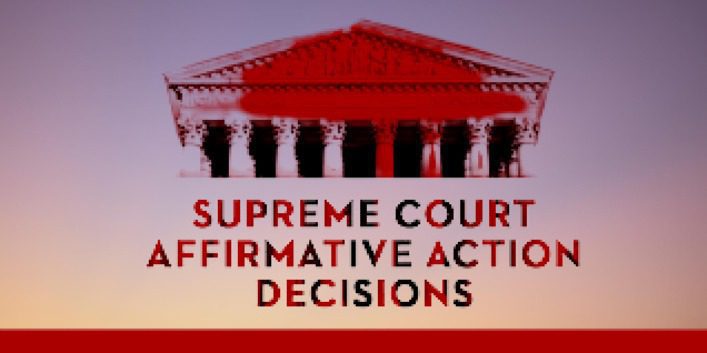Supreme Court Affirmative Action: In a landmark ruling, the Supreme Court recently struck down affirmative action, which has significant implications for corporate recruiting practices. Companies that have made efforts to diversify their workforce through race-conscious admissions decisions or programs may now need to reevaluate their strategies.
The Impact on Hiring Practices
Although corporations are already prohibited from making race-based hiring and firing decisions, the Supreme Court’s ruling could lead to an overhaul of diversity, equity, and inclusion (DEI) programs and hiring practices. Experts anticipate legal scrutiny and an increase in cases brought by employees who feel they were passed over for opportunities due to their race.
Affirmative Action and Workplace Laws
The Supreme Court’s ruling has no direct legal effect on workplace laws. Existing federal protections against discrimination based on race, gender, or age remain intact. However, certain programs implemented by companies may raise concerns under these workplace laws.
Potential Problematic Programs
Internship opportunities or leadership training programs that are restricted to members of a particular race may now face scrutiny. Companies will likely scrutinize their DEI initiatives to ensure compliance with the law and avoid legal liabilities.
Shifting Focus from Race to Obstacles
Employers are expected to change their approach to diversity, shifting the focus from race to evaluating the obstacles faced by job candidates. This change aims to put diversity programs on firmer legal footing while still promoting inclusion.
Promoting Inclusion and Fair Treatment
The Supreme Court’s ruling emphasizes that companies cannot consider race in hiring decisions. Employers will need to modify their policies and procedures to explicitly state that all employees are treated fairly and welcomed based on their skills and performance, rather than any irrelevant factors.
Also Read: Los Angeles Hotel Employees Return
Company Responses and Considerations
Companies, such as Amazon, are evaluating the potential implications of the Supreme Court’s decision. While maintaining their commitment to diversity, equity, and inclusion, companies will consider the impact of legal decisions on their programs and modify them, if necessary, to comply with the law.
Concerns for the Future
The elimination of race-based admissions decisions at universities could result in fewer students of color being admitted, potentially impacting the pipeline of diverse job applicants. Companies may explore alternative avenues for recruiting candidates, such as historically black colleges and universities or arenas with large minority populations.
Striking a Balance
Companies face the challenge of striking a balance between legal requirements and their commitment to promoting inclusion and diversity. By reassessing their strategies, employers can navigate the ruling’s challenges and find alternative approaches that comply with the law while fostering diverse and inclusive work environments.
Conclusion of Supreme Court Affirmative Action
The Supreme Court’s ruling on affirmative action has significant implications for corporate recruiting practices. Companies must ensure their hiring practices align with existing workplace laws. It is essential for employers to modify their diversity programs, emphasize fair treatment, and create inclusive environments for all employees. By reevaluating their strategies, companies can continue to promote diversity and inclusion while complying with the law, fostering a workforce that reflects the rich tapestry of American society.
Our Reader’s Queries
What is the affirmative action lawsuit for 2023?
The corporate world is now under the microscope as the U.S. Supreme Court decision to eliminate race-based affirmative action in higher education has raised concerns about diversity, equity, and inclusion (DEI) policies. The decision has essentially prohibited the use of race as a factor on its own in the education sector. Now, companies are facing scrutiny over their own DEI policies and how they approach diversity and inclusion in the workplace. The spotlight is on corporate America as it navigates through this new landscape of equality and fairness.
What was the Supreme Court decision on the Harvard University case?
On June 29, 2023, the U.S. Supreme Court ruled that Harvard College and the University of North Carolina (UNC) broke the Fourteenth Amendment of the U.S. Constitution and Title VI of the Civil Rights Act of 1964 (Title VI) by unlawfully considering race in their undergraduate admissions procedures.
What is the supreme definition of affirmative action?
In the US, affirmative action involves government-mandated, government-approved, and voluntary private programs giving special consideration to historically excluded groups, like racial minorities and women.
Will affirmative action affect scholarships?
The U.S. Supreme Court has ruled against using affirmative action in admissions, but not in the case of financial aid. Race-based scholarships have significantly helped students of color over the years. Colleges have found alternative methods to attract students of color without going against the Supreme Court’s decision.

